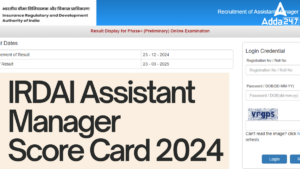Dear Aspirants,
Study
Notes are part of an effective strategy that helps you learn about a
subject. Your mind collects data of random details in the form of
keywords and memory maps visualized during preparation. Jotting down
main phrases & keywords, making memory maps and highlighting
important facts help one speed up the learning process. Study notes not
only help you learn effectively but also play a crucial role during
last minute revisions.
Notes are part of an effective strategy that helps you learn about a
subject. Your mind collects data of random details in the form of
keywords and memory maps visualized during preparation. Jotting down
main phrases & keywords, making memory maps and highlighting
important facts help one speed up the learning process. Study notes not
only help you learn effectively but also play a crucial role during
last minute revisions.
Nouns &
Pronouns
Pronouns
Definition:
Noun: These are the words which are the
names of some particular things or collection of things such as living
organisms (including humans), objects, places, actions, qualities, etc.
names of some particular things or collection of things such as living
organisms (including humans), objects, places, actions, qualities, etc.
Ex – Raghav is the new
Chairman of the National Bank. (Underlined words represent nouns)
Chairman of the National Bank. (Underlined words represent nouns)
Pronoun: These are the words which are used
in place of nouns (to refer to a noun) in a sentence, when a particular noun
has already been mentioned or is about to be mentioned.
in place of nouns (to refer to a noun) in a sentence, when a particular noun
has already been mentioned or is about to be mentioned.
Ex – Raghav is the new Chairman of the
National Bank. He is most suited for the job. (Underlined word represent
pronoun); Here ‘he’ refers to ‘Raghav’.
National Bank. He is most suited for the job. (Underlined word represent
pronoun); Here ‘he’ refers to ‘Raghav’.
Some basic rules/points to remember:
Nouns –
> Following common nouns are ALWAYS in plural form and do
not have singular forms:
not have singular forms:
Scissors; trousers; pants; shorts; spectacles;
goggles; binoculars; sunglasses; amends;
archives; congratulations; fireworks; outskirts; Shambles; Braces; Embers; Athletics; Belongings; Proceedings; Surroundings; Tongs; Vegetables; Valuables; etc
> Following nouns are Singular in form but Plural in meaning, i.e. they look
to be singular but are plural, and hence take plural verb:
Cattle; Cavalry; Infantry; Poultry; Police; People; Children; Peasantry;
Gentry, etc.
> Collective
nouns are ALWAYS singular:
Example–
A herd of cows is grazing the field.
The committee took the decision unanimously.
> The Following nouns are same in Singular as well as
Plural forms:
Sheep; Deer; Series; Species; Fish; Crew; Aircraft;
Counsel; Team; Jury, etc.
> The following are uncountable nouns and hence will take singular verb
with them (A/An/many/few/number of and
plural forms are NEVER used with
these) –
Poetry; furniture;
advice; information; baggage; stationery; business; crockery; News; Percentage; Pottery; Work(literary work);
Cost; Equipment; Postage; Hair;
Scenery; Dirt; Dust; Fuel; Traffic; Music; Evidence; Wastage; Jewellery;
Electricity; Money; Mischief; Luggage; Knowledge;
Crockery; etc.
Example –
I have some equipments that I needed for the project.
(Incorrect)
(Incorrect)
I have some equipment that I needed for the project. (Correct)
> Plural form is used after one of the; each of the; either of the; neither of the; some of the;
many of the, etc.
many of the, etc.
Pronouns –
· > ONLY subjective pronouns – He, She, It, You, They; We and I are used in place of the subject
in a sentence. Usage of objective pronouns like myself, himself, me, him, her,
them etc as the subject is grammatically incorrect.
in a sentence. Usage of objective pronouns like myself, himself, me, him, her,
them etc as the subject is grammatically incorrect.
For example –
Hello, Myself Nitesh Kaushal. (Incorrect)
Hello, I am Nitesh Kaushal (Correct)
Hello, I am Nitesh Kaushal (Correct)
> Reflexive
Pronouns – Myself,
himself, herself, itself, yourself, Yourselves, themselves; ourselves.
· > Usage of Reflexive pronouns – A reflexive pronoun is
used ONLY when the object and the subject of a sentence are the same thing.
used ONLY when the object and the subject of a sentence are the same thing.
For example:
You (sub.)
can talk to Neha (obj.) or myself (obj.).
(Incorrect)
can talk to Neha (obj.) or myself (obj.).
(Incorrect)
You can talk to Neha or me. (Correct)
Rohit saw me in the mirror. (Correct) Here, ‘Rohit’ and ‘me’ are different people. ‘Me’ refers
to the speaker.
Rohit saw himself in the mirror. (Correct) Here, ‘Rohit’ and ‘himself’
refer to the same person.
refer to the same person.
Payal made herself fruit juice. (Correct
– because the subject and object are same)
Payal made myself fruit juice. (Incorrect – because the subject and
object are different persons, hence reflexive pronoun can’t be used)
object are different persons, hence reflexive pronoun can’t be used)
Hence, –> Payal made me fruit juice. (Correct)
· > Possessive
Pronouns – These
reflect possession of something by some. These include: My, mine, your, yours,
his, her, hers, their, theirs, its, our, ours
Pronouns – These
reflect possession of something by some. These include: My, mine, your, yours,
his, her, hers, their, theirs, its, our, ours
Usage – This is my pen. OR This pen is
mine. (Both Correct)
mine. (Both Correct)
· > If a pronoun is used before a gerund (V1+ing), then it
HAS TO BE a possessive pronoun.
HAS TO BE a possessive pronoun.
For example:
Sakshi said, she did not have any problem with him using her laptop. (Incorrect)
Sakshi said she did not have any problem with his using her laptop. (Correct)
· > Usage of relative pronouns: –
| Relative Pronoun | Used for | Used as |
| Who | People | Subject |
| Which | Things/animals | Subject/Object |
| Whom | People | Object |
| Whose | People/Things | In place of possessive pronouns; subject as well as object. |
| That | People/Things | Subject/Object |
- Articles: English Language Notes for Bank and other Competitive Exams.
- Prepositions: English Language Notes for Bank and other Competitive Exams.
- How To Solve Data Interpretation Questions?| Quantitative Aptitude Notes





 The Hindu Review October 2022: Download ...
The Hindu Review October 2022: Download ...
 SSC Calendar 2025-26 Out, Check SSC CGL,...
SSC Calendar 2025-26 Out, Check SSC CGL,...
 IRDAI Assistant Manager Score Card 2024 ...
IRDAI Assistant Manager Score Card 2024 ...




